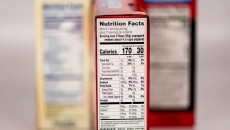Gelnex markets traceability amid safety concerns
IFT 2008 highlighting a 100 percent traceability program it says it
has always followed, but that now more than ever needs to be
marketed.
"We've had this procedure implemented since day one - it's one of the most important requirements for the gelatin industry," Gelnex commercial director Felipe Chaluppe told FoodNavigator-USA. But following widespread traceability concerns in the food industry, the privately-owned company decided to promote the attributes of its global supply chain. "It's more of a marketing announcement than any other thing, because of all the recalls last year," said Chaluppe. Founded in 1998, Gelnex pioneered the production of type A pork skin gelatin in South America and claims to be the only producer of this product in that continent. Fundamental to Gelnex's traceability program, according to Chaluppe, is that it sources raw materials close to its processing facilities, namely in Brazil. "Some producers in the US buy material from China and India - and it's known in the industry that those two countries don't have strong traceability," he opinioned. In addition, the company said it only works with slaughterhouses that are under federal inspection services as opposed to any local jurisdictions. "The way we guarantee our traceability is by negotiating and getting the raw material from those slaughterhouses that are under federal inspection services," said Chaluppe. Across the food industry numerous ingredients manufacturers have been looking for ways to distinguish their products from any unsafe products in light of contamination scandals last year. In particular, Chinese imports were put under a negative spotlight as the result of contamination cases involving products from pet food to toothpaste. In April 2007, wheat gluten products imported from China for use in pet food were found to have been contaminated with the banned chemical melamine and were blamed for the deaths of hundreds of dogs and cats. This uncovered a host of other cases that left manufacturers who buy ingredients from the country under pressure to demonstrate they are sourcing responsibly, as well as giving those companies who do not source from the country the opportunity to differentiate themselves as 'risk-free'. For gelatin producers, the image threat could be worse not only because it is mainly sourced from animals, but also because it has been associated with food scares such as BSE. "It's a very delicate and sensitive material," said Chaluppe. Gelnex is facing up to any potential image problems by promoting its traceability program, but also by focusing on customer service. "What we are doing is launching new products and working one-to-one on research and development with our customers," said Chaluppe. In addition, the company is focusing on a carbon footprint program which it expects will also be a growing requirement among clients.













